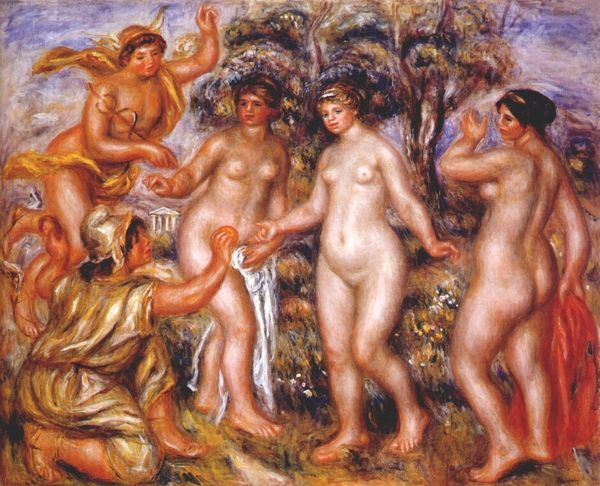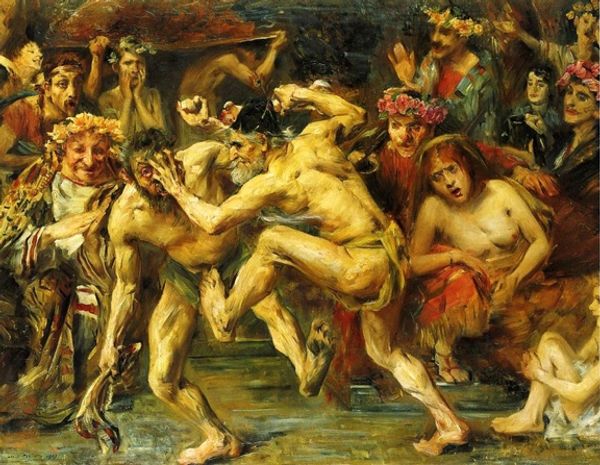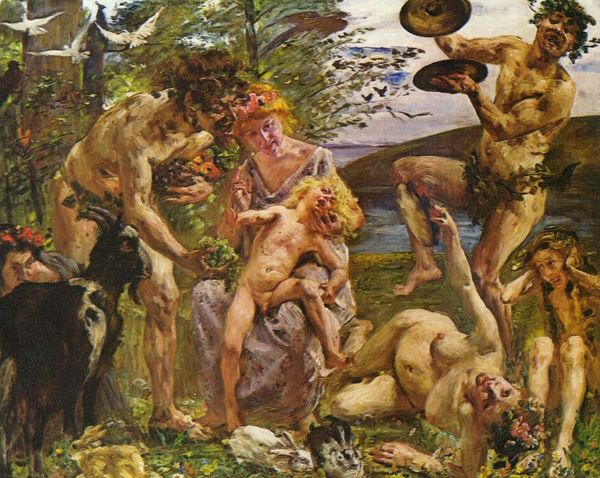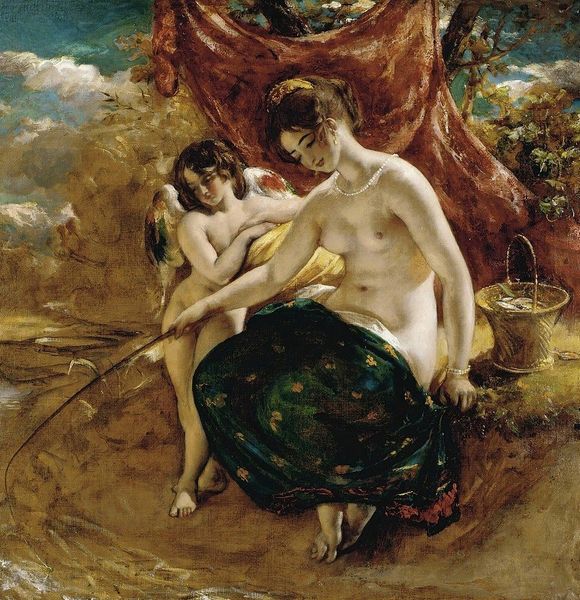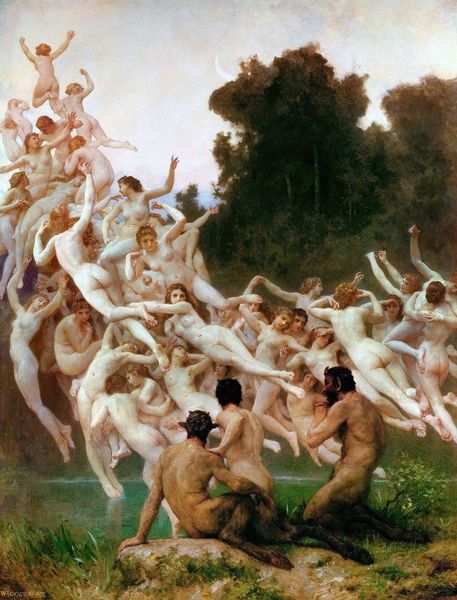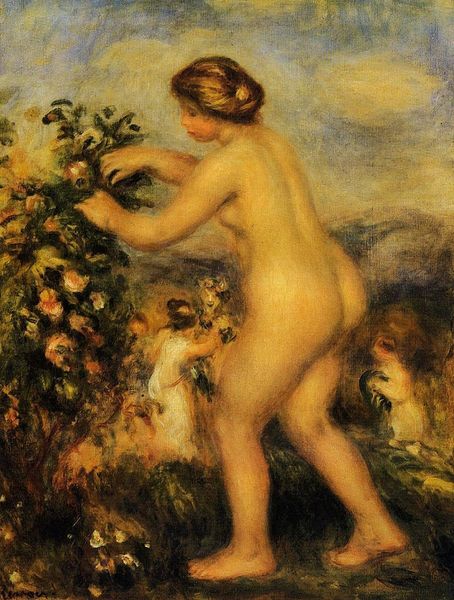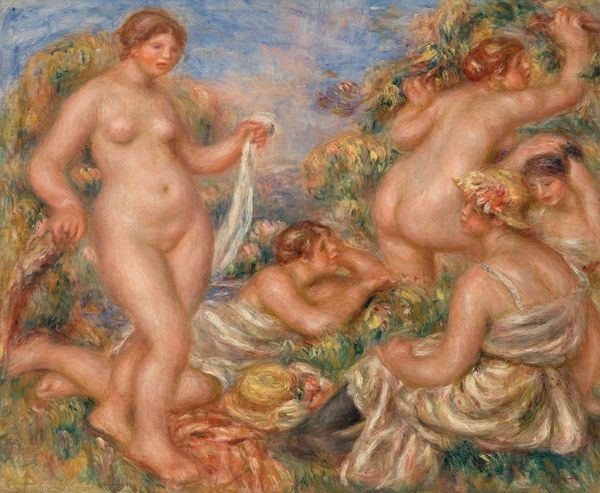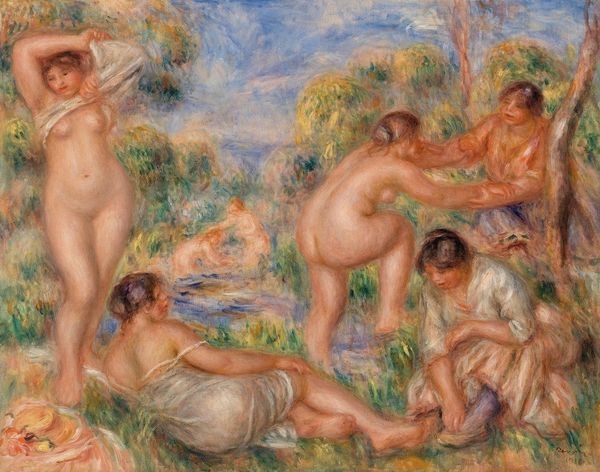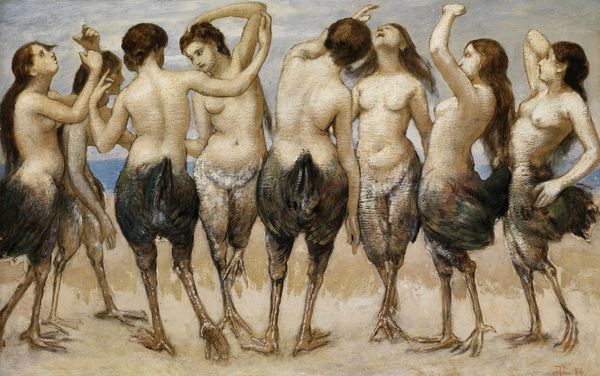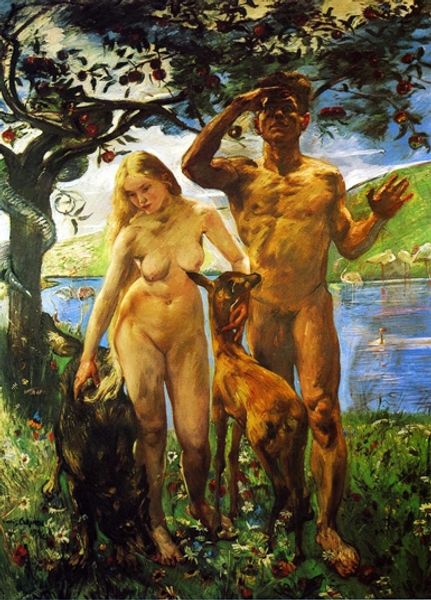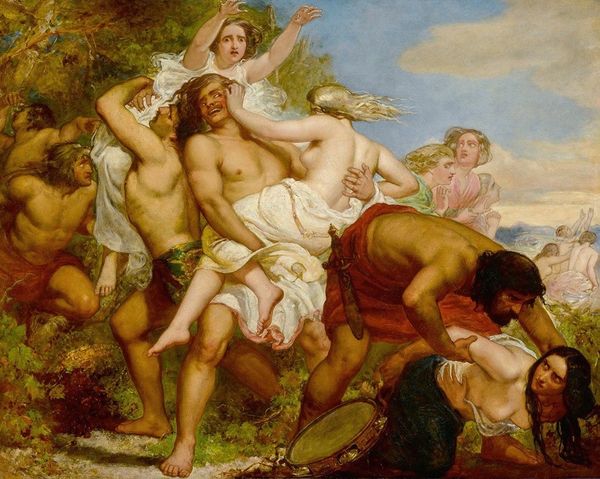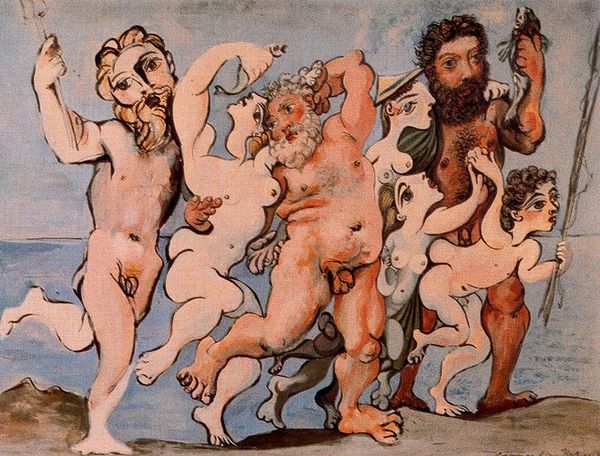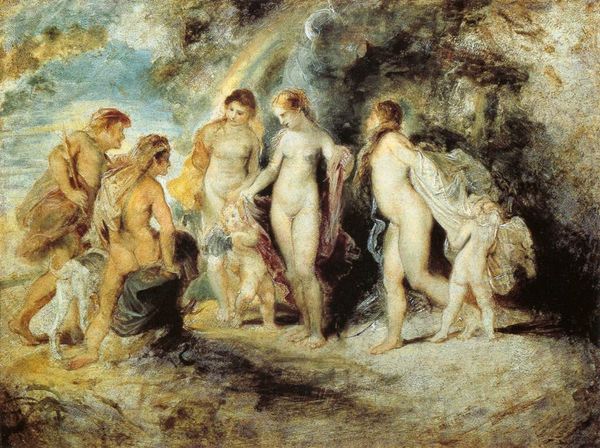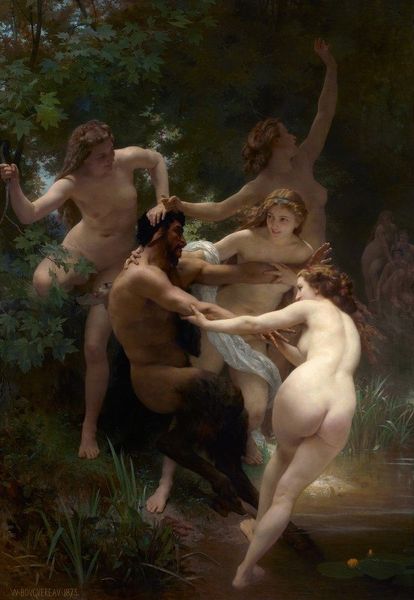
Copyright: Public domain
Curator: Ah, there’s a painting radiating Dionysian revelry. It’s Lovis Corinth’s “Baccants Returning Home,” rendered in oil on canvas in 1898. Editor: The whole scene is steeped in hedonism, bathed in a rather feverish yellow. I see a group seemingly drunk on life, stumbling in what looks like the afterglow of a wild ritual. The energy feels manic, chaotic, even desperate. Curator: Corinth taps into the ancient mythology of Dionysus, god of wine and ecstasy. The Bacchantes were his female followers, known for their frenzied rituals of ecstatic release. Vines are potent symbols of abundance, pleasure, and transformation – observe how some figures wear them, or they serve to adorn animals such as pan. Corinth captures an eternal longing to transcend boundaries, shedding everyday norms. Editor: Yes, I feel this abandonment to the senses so evident. Look at the expressions – a mix of vacant bliss and unhinged laughter. Their nudity underscores a rejection of societal constraints, a desire to return to some primal state of being. There's an intentional challenge of bourgeois norms, a rebellious stance against restrictive morality. This all-male rendering still raises questions regarding power, the artist’s intent, the lack of female gaze at play. Curator: The color palette also contributes significantly. That golden hue may well symbolize a fleeting sense of enlightenment experienced under Dionysus’s sway – also observe its historical ties to fin-de-siècle sensibilities about decadence and spirituality, which sought escape from burgeoning industrialization. Editor: That feverish yellow really works with the theme. The brushstrokes appear hurried, mirroring the wild, almost crazed abandonment suggested by the image, furthering its aura. It's not just pleasure; I think there's also a critique here, revealing the potential dangers lurking within unregulated ecstasy, such as alienation and recklessness. Curator: Indeed. It’s an expressionistic rendering of timeless archetypes in painting tradition, one reminding us that art and ritual act as portals to experiencing ecstasy. Editor: For me, it's also a snapshot into anxieties around shifting societal values in late 19th-century Europe – hedonism standing defiant as a political act. Let's take it as a vibrant provocation that forces us to question our own relationships to freedom and indulgence, its impact being a lesson of self reflection to this day.
Comments
No comments
Be the first to comment and join the conversation on the ultimate creative platform.
